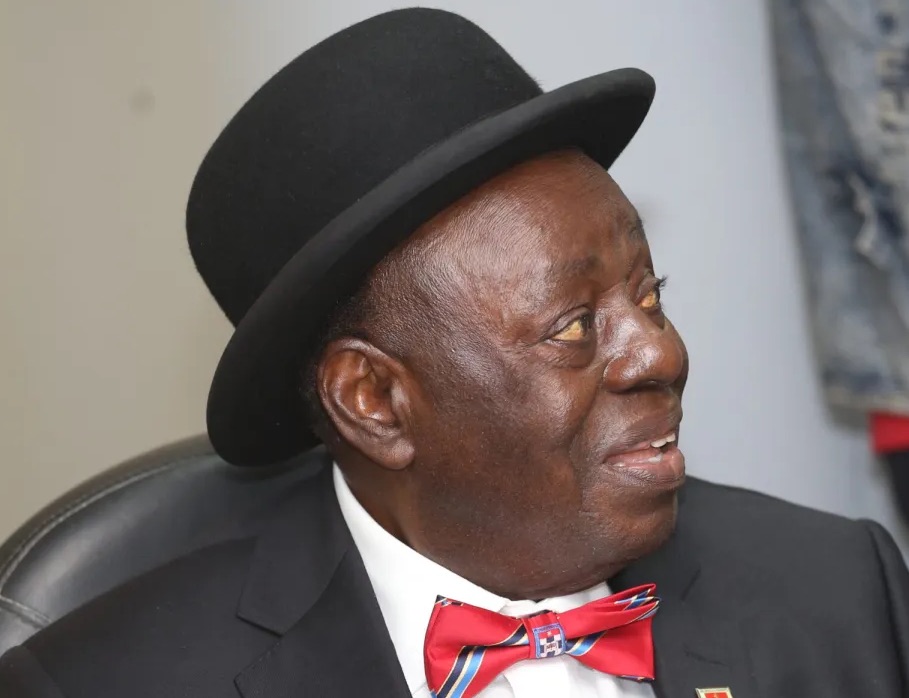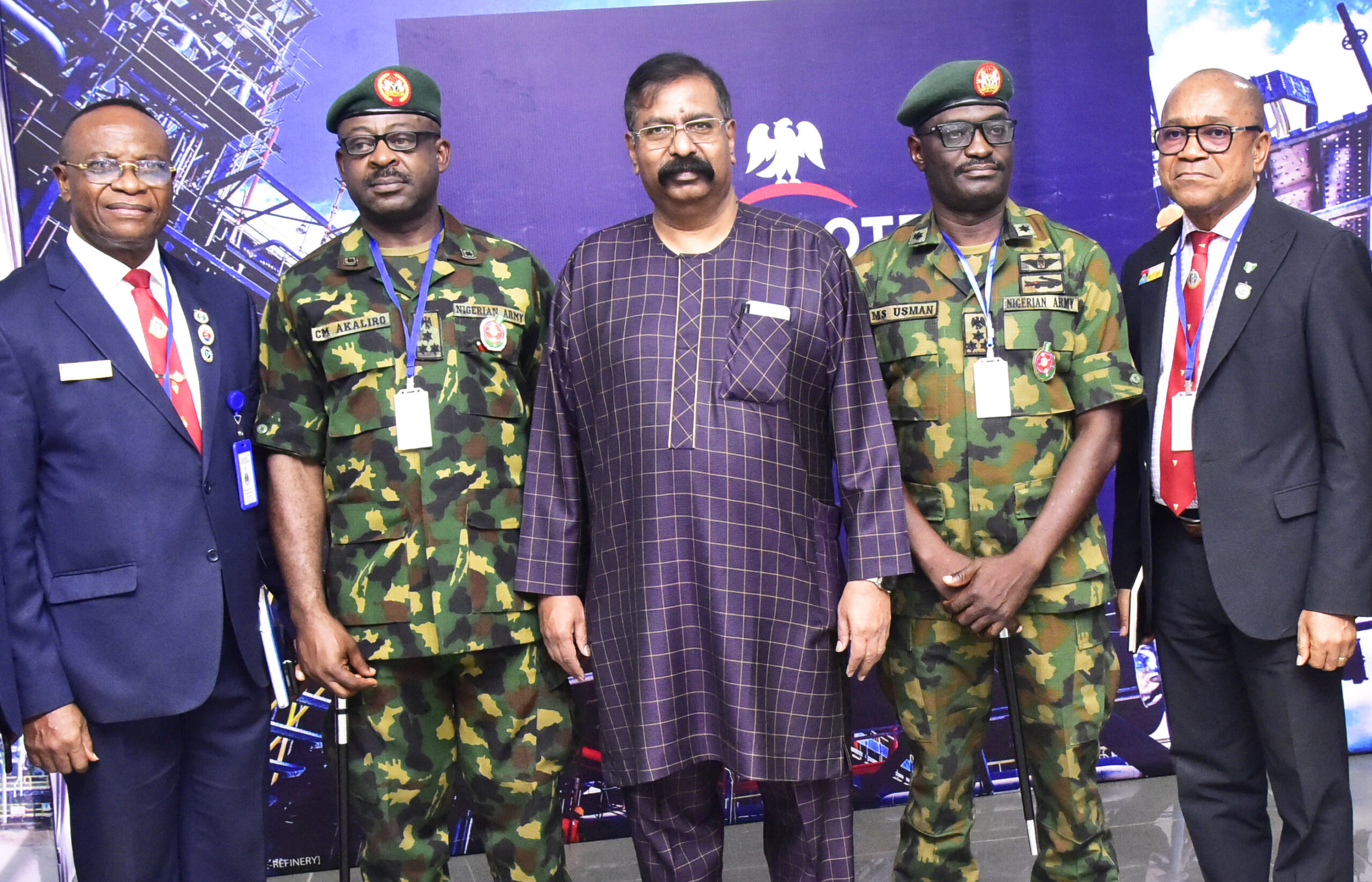Energy
How Executive Rascality Fuels Energy Crisis In Nigeria – Afe Babalola

The lingering energy crisis in Nigeria has been traced to executive rascality, which has seen the Federal Government turn blind eyes to extant provisions of the Petroleum Industry Act, 2021 (PIA), which the Nigerian National Petroleum Company Limited (NNPC Ltd) appears to be breaching.
Legal luminary, Afe Babalola shared these views in an article in the Vanguard Newspapers, under the topic, ‘The NNPC Limited and Dangote Refinery Limited (2)’.
He pointed out that though section 64(c) provides that the NNPC Ltd has the power to lift and sell royalty oil, profit oil and tax oil on behalf of Nigeria, going by section 31(g) of the Act, the Nigerian Midstream and Downstream Petroleum Regulatory Authority (NMDPRA) also has the mandate to ensure the supply of crude oil to local refineries.
ALSO READ: Caribbean Countries To Partner With Dangote On Cement, Fertiliser Manufacturing
After considering relevant provisions of the Act, the industrialist asserted that “The powers of the NNPC Limited (are) restricted to dealings in royalty oil, profit oil and tax oil only.”
He sees no reason why the relevant organs of the Nigerian government should look away while the NNPC Ltd, usurps the legal duties of the NMDPRA, which he views as “an unpardonable anomaly”, that tends to defeat the idea of free market economy.
He maintained that the seeming connivance of government has created “unfavourable market conditions,” in the energy sector, particularly on the pricing of the Premium Motor Spirit (PMS), also known as petrol, which “is against the intentions of the PIA”.
He noted that government’s undue and illegal interference in the pricing of petrol in the domestic market tends to support imported products as against locally manufactured ones, as typified by the relationship with the Dangote Petroleum Refinery and Petrochemicals.
Babalola pointed out that forcing the Dangote Refinery to import crude was another way of making sure that its products to hit the local market at higher prices, while paying subsidy on imported refined products, ‘smelt like sabotage’.
The “Federal Government of Nigeria should terminate the payment of subsidies on imported petroleum product since it is not paying any subsidy on petroleum products from Dangote Refinery. This will give both products a level playing ground in the market,” Babalola wrote.
He also averred that the FGN and NMDPRA “should call the NNPC Ltd to order for the sake of the Nigerian economy and collective good.
Babalola urged the powers that be to “put mechanisms in place to curb the powers of the NNPC Ltd to sabotage the purchase of PMS from Dangote Refinery.”
In what sounded like despair, Babalola lamented, “Unfortunately, these anomalies have gone unremedied, leading to unfair market practices in a free-market economy like Nigeria.”
Energy
How Savannah Energy Generated Gross Income Of $320m In 2024

. . . Insights On FY25 Plans For Nigeria, Niger
Savannah Energy PLC, the British independent energy company focused around the delivery of Projects that Matter, has offered a comprehensive update on its operating performance and outlook, while also outlining its FY25 plans for the existing portfolio in Nigeria and Niger.
These were detailed in a statement on Tuesday in Lagos by Communications Manager, Okwudili Onyia.
The update shows that its gross production in Nigeria has averaged 22.7kboe/d (88% gas; flat YoY), generating Total Income of $320m and Adj. EBITDA (including other operating income) of $257m in the 10-months to end-October, up from $233m and $202m respectively in H1 FY24A.
It revealed that the company’s midstream subsidiary, Accugas Limited has now drawn NGN279bn under its new NGN340bn transitional debt facility, with proceeds used to pay down its US$ facility.
“The facility should be fully drawn by year end, with management requesting an increase in the size of the facility to enable the remaining $225m balance to be converted into Naira,” it added.
It was gathered that this process, when complete, will align Accugas’ debt facility with the currency in which gas revenues are received, while the company also continues to advance its plans for a potential long-dated domestic bond issuance to ultimately replace the NGN transitional facility.
The Chief Executive Officer of Savannah Energy, Andrew Knott, said, “I am pleased to provide an operational and financial update which demonstrates the continued progress we have made as a business in 2024. 2025 is clearly going to be an exciting year for our Company: we have a large operational programme in Nigeria which is expected to enhance both our oil and gas production levels and capacity; we intend to progress our R3 East oil development project in Niger; we continue to pursue key acquisitions in the upstream oil and gas space; and we expect to announce plans significantly expanding our renewable energy business. Fundamentally, Savannah remains unequivocally an “AND” company, seeking to deliver strong performance both for the short AND long term across multiple fronts, and pursuing growth opportunities in both the hydrocarbon AND renewable energy sectors.”
According to the update, the company’s US$45 million Uquo Central Processing Facility (“Uquo CPF”) compression project in Nigeria is right on track for completion of construction before year-end, with commissioning taking place in Q1 2025, enabling the expansion of gas production in the medium term, with FY25F gas volumes expected to remain broadly flat YoY.
There are also plans to drill an additional Uquo development well and exploration well in H2 FY25. The transaction to increase Savannah’s ownership of the Stubb Creek asset to 100% for $61.5m is now scheduled to complete in Q1 FY25. Savannah has signed a new $60m RBL facility with The Standard Bank of South Africa Limited and Stanbic IBTC Bank Limited to fund the transaction and continues to plan for an expansion of oil production from the field.
In Niger, Savannah continues to seek to progress its 35 MMstb (Gross 2C Resources) R3 East oil development in South-East Niger. During 2024, it sought to optimise the development plan for the R3 East Area and, whilst there is no change to its resources estimate, it now forecasts a peak potential production of approximately 10,000 bopd (vs 5,000 bopd in the previous plan). Savannah’s estimates of the forecast PV10 value of the R3 East development project has also increased from US$150 million to US$210 million.
Savannah’s Renewable Energy Division remains focused on its target of 2GW+ pipeline of renewable energy projects by the end of FY26, up from c.700MW currently. A firm believer in Africa’s transition to renewable energy, Savannah has up to 696 MW of renewable energy projects currently in motion, including the up to 250 MW Parc Eolien de la Tarka wind farm project in Niger and the up to 95 MW Bini a Warak hybrid hydroelectric and solar project in Cameroon.
Energy
Port Harcourt Refinery Shuts Down, CDU Unit Operating Without PMS Production
The Nigerian National Petroleum Company Limited (NNPCL) has confirmed the shutdown of operations at its Port Harcourt refinery, with only the Crude Distillation Unit (CDU) currently running.
While the CDU continues to produce naphtha, kerosene, and diesel, it is unable to produce the necessary components for Premium Motor Spirit (PMS), commonly known as petrol, sources within the refinery disclosed to SaharaReporters.
This development follows weeks of conflicting reports about the refinery’s operational status.
READ MORE: Olajumoke Onibread Accuses Ex-Husband Of Assault, Career Sabotage
As recently as Tuesday, NNPCL had claimed that the refinery was fully operational and producing PMS.
However, reports revealed that only the outdated section of the refinery was running, and instead of producing petrol, it was blending “Crack C5” with naphtha to create a blended form of gasoline, which refinery staff warned could negatively affect vehicles.
Although blending is a standard industry practice, experts explained that the secondary units necessary for producing reformate – a key component of gasoline – have yet to be commissioned at the refinery.
“The CDU is still running but the operation of the depot is shut down at the moment,” a senior refinery official told SaharaReporters on Saturday.
“The CDU produces naphtha, diesel, and kerosene but cannot produce the component for the production of PMS.”
The refinery, with a 150,000 barrels-per-day capacity, is not expected to reach full production until 2026, contingent on securing the necessary funding.
“At the moment, the project has exceeded $2 billion,” the official added, pointing out that even if the CDU operates at full capacity, it can only produce limited quantities of these products, which are insufficient to meet national fuel needs.
Recall that on Tuesday, NNPCL had confirmed earlier reports that only the old Port Harcourt Refinery was operational and producing blended gasoline rather than actual PMS.
In a statement, NNPCL’s Chief Corporate Communications Officer, Olufemi Soneye, confirmed that the refinery was running at 70% of its installed capacity and producing 1.4 million liters of Premium Motor Spirit (PMS) daily, blended with Crack C5, a component sourced from Indorama Petrochemicals.
“It is worth noting that the refinery incorporates Crack C5, a blending component from our sister company, Indorama Petrochemicals (formerly Eleme Petrochemicals), to produce gasoline that meets required specifications,” Soneye said.
“Blending is a standard practice in refineries globally, as no single unit can produce gasoline that fully complies with any country’s standards without such processes.”
Despite these efforts, the continued shutdown of the refinery’s non-CDU units and the limited scope of its operations have raised concerns about Nigeria’s ability to meet its fuel demands.
NNPCL has reassured the public, however, that work on the new Port Harcourt refinery is progressing, with plans to bring it online in the near future.
Energy
NNPC Ltd’s New EVP Upstream, Charges Stakeholders On Corp Governance, Transparency

A call has gone to upstream stakeholders in Nigeria’s oil and gas industry to strengthen corporate governance, transparency and efficiency in their operations.
The charge was made on Tuesday, in Lagos, by the Executive Vice President, Upstream, The NNPC Ltd, Udobong Ntia.
Ntia shared his views during an Upstream Governance, Risk and Compliance Workshop themed “Enhancing Governance, Risk and Compliance in Nigeria’s Upstream Sector”.
Delivering his opening remarks at the workshop, Ntia stressed that governance, risk management, and compliance are at the foundation of NNPC Ltd’s core values of Integrity, Excellence, and Sustainability.
ALSO READ: Obi Congratulates NNPC Ltd On Port Harcourt Refinery
He commended the upstream leadership and regulators for supporting the initiative to assemble stakeholders to discuss issues that have a bearing on individual and collective success towards attaining the clear mandate of sustainably ramping up the nation’s crude oil production.
The EVP also reiterated his readiness to provide enablers within his purview that will accelerate the implementation of initiatives that will enhance governance, risk management and compliance in the upstream sub-sector.
The workshop had in attendance NNPC Ltd’s Chief Compliance Officer, Nasir Usman; NNPC Ltd’s Chief Upstream Investment Officer, Bala Wunti; representatives of industry regulators such as the Nigerian Upstream Petroleum Regulatory Commission (NUPRC); the Nigerian Content Development and Monitoring Board (NCDMB) and over 20 upstream operators from International Oil Companies in Nigeria.















